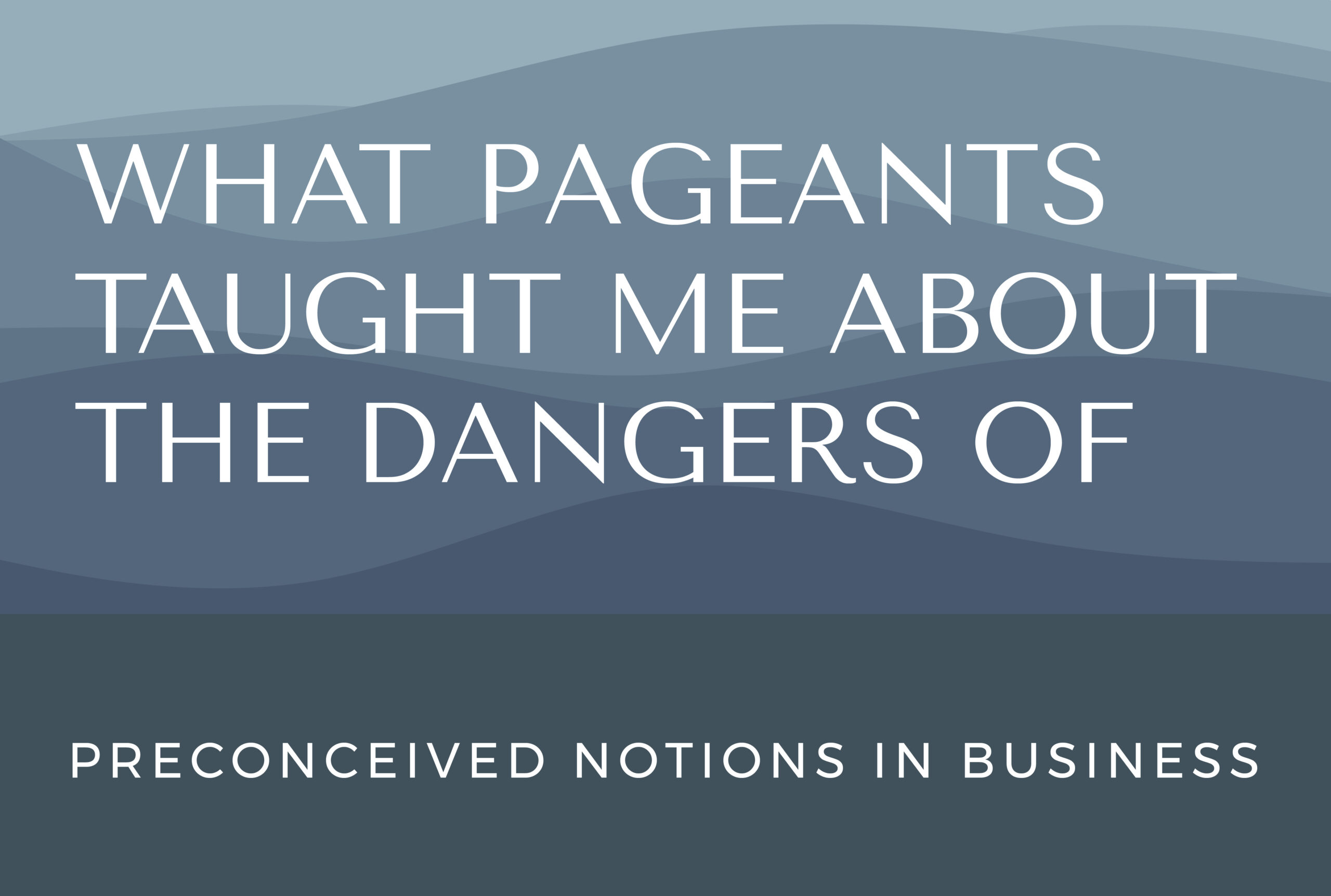
What Pageants Taught Me About the Dangers of Preconceived Notions in Business
Inspired by this month’s Moms Making Six Figures Podcast where I sat down with a panel of incredibly talented business women who also happen to be beautiful and badass, and representing the best of our state as title holders in the Mrs. Idaho pageant. In our interview these three women shared all about pursuing their passion for their platforms while also juggling the demands of home and work. Despite your preconceptions, the pageant world has a lot to teach each of us –about empowering and edifying one another, bringing awareness and action to causes and issues that women, mothers, and female business owners care deeply about, and the power of unity in the midst of division.
Preconceived Notions
Whether in the world or in the workplace, the reality is that all of us hold preconceived notions and preconceptions about various situations, and about people. These preconceptions (or dare we say stereotypes) are meant to protect us and to guide us from our existing knowledge –it’s our primal instinct kicking in. The results, however, can often lead us to walking the line of prejudice, bias and missed opportunities if we don’t monitor how these preconceptions show up in our day-to-day. According to Psychology Today, “Society has found no process to educate people to reduce bias”. In other words, there is no magic solution, and this is a universal issue. By becoming more aware of our own tendency toward bias, and developing a willingness to learn from our peers, we can confront these notions and the dangers they enact within our relationships, both personal and professional.
- First, we must be aware of our preconceptions and preconceived notions.
Tune-in to your feelings. Are you comfortable or uncomfortable with people who are different than you? Do you find yourself hoping they would be different than you expected? The same questions apply to situations or experiences. Once you’ve identified a level of comfort, or lack-thereof, consider what forms of bias may exist.
There are four main types of Unconscious Bias: Affinity Bias, Perception Bias, the Halo Effect, and Confirmation Bias.
- Affinity Bias is feeling a connection to those similar to us.
- Perception Bias consists of our stereotypes and assumptions about different groups.
- The Halo Effect occurs when we project positive qualities onto people without actually knowing them.
- Confirmation Bias is when we look to confirm our own opinions and pre-existing ideas.
- Second, it’s important to anticipate when our preconceived notions may rear their heads.
If you’re an anxious person, or if you’ve ever loved someone who struggles with anxiety, this next technique will sound all too familiar. Essentially, you’re rehearsing the upcoming situation, scenario, or meeting with a new individual (or a known individual for that matter) so that your brain can grab hold of the bias that may present itself. By preparing for the worst case and best-case scenario, you are telling your brain that you see it’s existing narrative and that you’re going to table it to see if a new story can be written.
- Third, it’s time to put it into practice by remaining curious.
Once you’ve become more self-aware of your own preconceived notions and you’ve become more acclimated to anticipating situations where they may show up, it’s imperative that you put this knowledge to use and begin to broaden your peer group. In order to become more comfortable with what is currently uncomfortable you need to pursue it rather than run from it. Put yourself into new social situations, explore new relationships, and step out of your comfort zone –one that can often look like an echo chamber (Confirmation Bias anyone?).
Professional Implications
Beyond improving your workplace ethics, becoming aware of your own biases and where they stem from can also improve your aptitude for success. By diversifying your peer group, holding space for cognitive dissonance, and opening yourself to new ways of thinking, your creativity, knowledge, and client list will also expand.
Take a look at the following example, a particularly relevant examination of our preconceived notions in the era of “The Great Resignation”:
“I’m not smart enough. I don’t have the right education/skills/experience.”
According to CBS News, nearly two-thirds of American employees regret their college degrees. If we stay stuck in this biased notion of reality, or we’re surrounded by friends, family, and colleagues that hold the same preconceptions, we’ll continue to think our options are limited to possessing the “right” degree, a specific skill set, or years of experience in a particular field. Taking hold of this preconception, allows us to see that there are opportunities we’re already excluding ourselves from. Don’t let your preconceived “No” limit your yeses.
Had I listened to my preconceptions of pageantry, I would have missed out on the valuable opportunity to get to know three incredibly gifted women, to expand my professional network, and my newfound appreciation for what pageants actually do for women: instill confidence, build community, and enable them to impact their communities through their platforms.


Post a comment:
You must be logged in to post a comment.